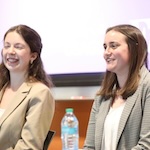
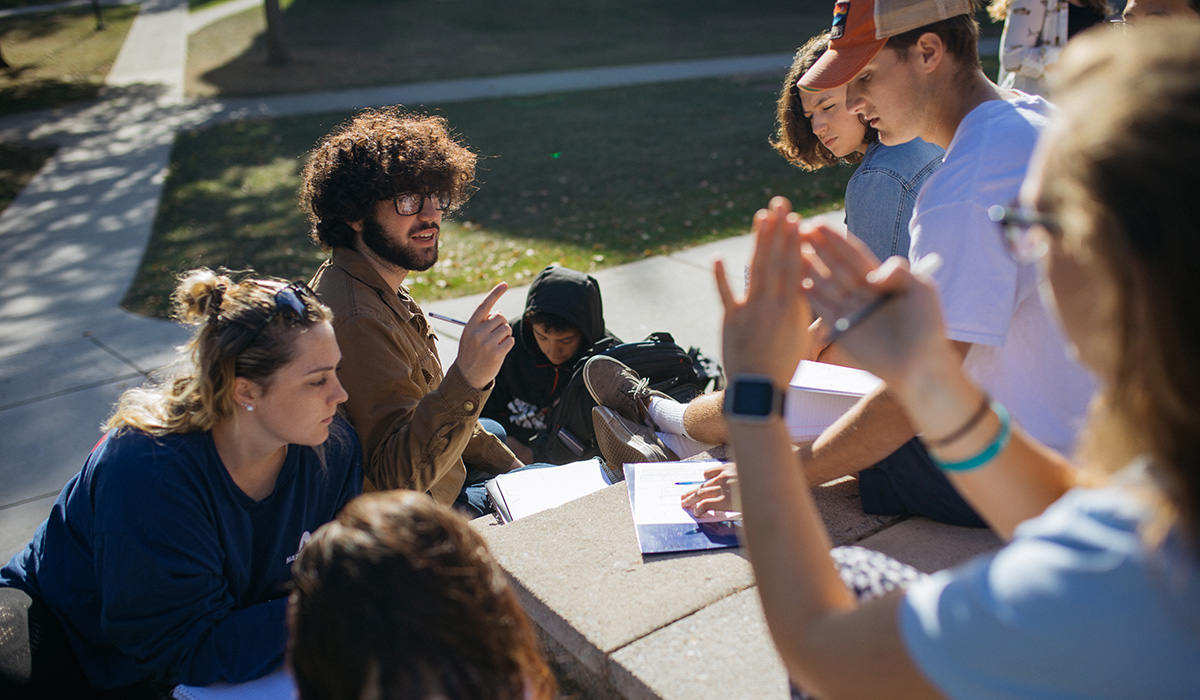
Gettysburg College delivers our signature undergraduate experience to every student through the Gettysburg Approach. It’s how we put A Consequential Education into action. We build within every student a breadth and depth of knowledge and set of enduring skills to prepare them to thrive in a competitive, complex world.
Within the Gettysburg Approach, students deepen their knowledge and practice and reinforce the enduring skills of adaptability, communication, creativity, intercultural fluency, leadership, problem solving, and teamwork through the Guided Pathways and Personal Advising Teams. Students hone these enduring skills through the experiences they select in an intentional way as they connect the activities they pursue with the skills they hope to strengthen.
Explore why these enduring skills are what employers want and what our world needs from Gettysburg graduates.
“Oral communication, for example, is viewed by most employers (64%) as a very important skill for new hires to possess, yet roughly half as many employers (34%) agree that recent college graduates are very well prepared in this area.”
– American Association of Colleges and Universities (AAC&U), “The Career-Ready Graduate: What Employers Say about the Difference College Makes,” 2023
Enduring skills: What employers want from college graduates
In May 2023, the American Association of Colleges and Universities (AAC&U) conducted a national survey of employer views on higher education and the effectiveness of colleges and universities in preparing students for careers. More than 1,000 executives and hiring managers participated in this research, the eighth survey of its type that the AAC&U has commissioned since 2006.
Results from the 2023 survey indicated a strong correlation between the outcomes from a liberal arts education and the knowledge and skills employers identify as essential for success in entry-level jobs and advancement within their companies.
While eight in 10 employers surveyed agree that recent college graduates are well prepared for entry-level and advanced positions, they are divided about graduates’ proficiency in skill areas essential for career success. According to the report, “Oral communication, for example, is viewed by most employers (64%) as a very important skill for new hires to possess, yet roughly half as many employers (34%) agree that recent college graduates are very well prepared in this area.”
When asked to identify the top three skills they would like colleges and universities to focus on to improve graduates’ career preparedness, employers ranked critical thinking as the top skill, followed by oral communication, adaptability and flexibility, and problem solving.
Through the Gettysburg Approach, Gettysburg College is responding to this preparedness gap—the divide between the importance employers place on specific skills in the workplace and their assessment of a college graduate’s readiness to effectively execute these skills.
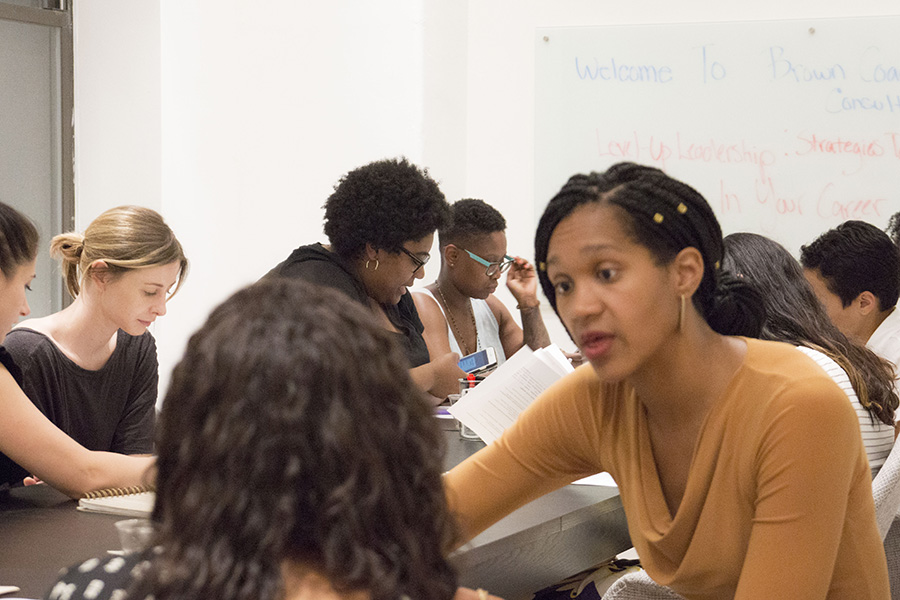
Enduring skills: What our students gain through the Gettysburg Approach
Within the Gettysburg Approach, Gettysburg College emphasizes developing and deepening the enduring skills most valued by employers and graduate schools. These transcendent skills can be the hardest to teach. Yet, at Gettysburg, they are practiced, absorbed, reflected upon, and articulated purposefully by our students—giving them an advantage in their next step after graduation and every step after.
Our emphasis on developing these enduring skills has proven successful for generations of Gettysburgians. A survey of 200 employers reported that Gettysburg graduates possess and outperform their peers in what employers define as must-have career skills:
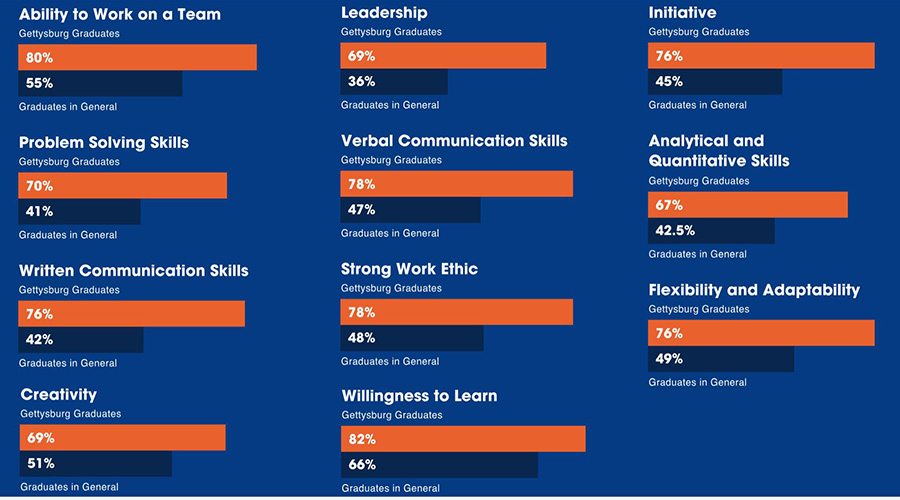
Enduring skills: What our world needs from college graduates
Possessing the skills to communicate well, think critically, and work with others collaboratively are not only essential for career success, but also skills our world needs from college graduates. For international and global studies major Michael DeRenzo ’26, addressing global poverty requires communication and teamwork skills to confront this challenge. Preparing for transformational change and impacting the future of labor calls for committed leadership from individuals like political science and East Asian studies double major Avery O’Neill ’24. Like environmental studies major Molly Hoffman ’24, advocating for earth-conscious environmental practices involves critical thinking and communication skills.
Enduring skills at work: Reflections from Gettysburg students
Through a guaranteed Career-Ready Experience, Gettysburg students participating in the Guided Pathways can further develop these skills in real-world professional settings.
“A Career-Ready Experience will help students connect what they learn in the classroom to graduate schools and the professional workplace by providing diverse, dynamic experiences to prepare them for a lifetime of career advancement and personal success,” said Associate Dean of Co-Curricular Education Jim Duffy.
Internships are just one of several examples of a Career-Ready Experience students can discover at Gettysburg.

Caroline Gill ’24: Strengthening creativity and teamwork in lifestyle
Caroline Gill ’24, a business, organizations, and management major with a minor in political science, honed her experiential learning through internships at The GIANT Company and Burlington. At The GIANT Company, where she served as a marketing intern, Gill developed her communication skills through participating in meetings and events in collaboration with the Philadelphia 76ers and Philadelphia Phillies. “We worked not only as an internal team, but also as a team with the 76ers and Phillies to understand how to better each company and its objectives,” she said.
As a women’s knit tops buying intern for Burlington, Gill strengthened her creativity skills as she worked in product development and competitor analysis. “Understanding trends and projections for the current and next seasons were imperative to bring customers to [Burlington] stores,” she explained. “Going into New York City market days twice a week also allowed me to strengthen my teamwork skills and communication, as I had to work with various vendors. Being able to adapt to different situations such as shipments being late or the price of the garment being too high showed me how important it is to problem solve for the company’s needs.”
Andrew Nguyen ’24: Developing critical thinking and problem solving for business and finance
“During the summer of 2023, I interned at Global Industrial Company as a pricing analyst intern,” said mathematical economics major Andrew Nguyen ’24. “I had the opportunity to connect with wonderful colleagues and learned a lot about business narrative, researching skills, and applications of economic analysis on solving real business challenges.”
“I believe that my involvement in enriching academic courses and co-curricular leadership positions at Gettysburg prepared me for success in my internship where I can share the skills I have gained with the larger community and for a meaningful purpose.”
– Natalie Vancura ’25
Natalie Vancura ’25: Honing critical thinking and leadership for human resources support
Natalie Vancura ’25, a health sciences and public policy double major, experienced the value of building communication and critical thinking skills through her internship with Six Seconds. This international nonprofit provides businesses and organizations with emotional intelligence assessments and human resources tools.
“I have the opportunity to communicate with their global team to achieve the company’s mission of improving the emotional intelligence of people and organizations. I apply critical thinking skills to assess grant writing and marketing strategies to increase support for this goal,” she said. “I believe that my involvement in enriching academic courses and co-curricular leadership positions at Gettysburg prepared me for success in my internship where I can share the skills I have gained with the larger community and for a meaningful purpose.”
Dylan Weber ’24: Practicing problem solving and teamwork for coding and software development
Dylan Weber ’24, a computer science and health sciences double major, completed a summer 2023 internship as a software engineer at Graduate Management Admissions Council (GMAC) in Reston, Virginia. Weber said he relied on many enduring skills, including problem solving, teamwork, and collaboration, in his work coding and executing software development strategies for the firm. “I used problem solving and quick learning skills to investigate and solve bugs in the platform’s code. I wrote and saw the deployment of my code changes to the product,” he said.
“The Center for Career Engagement helped facilitate the interview for this position and prepared me to make a strong impression,” he continued. “Through connections I made at this internship, I secured a job at Billhighway after graduation.”
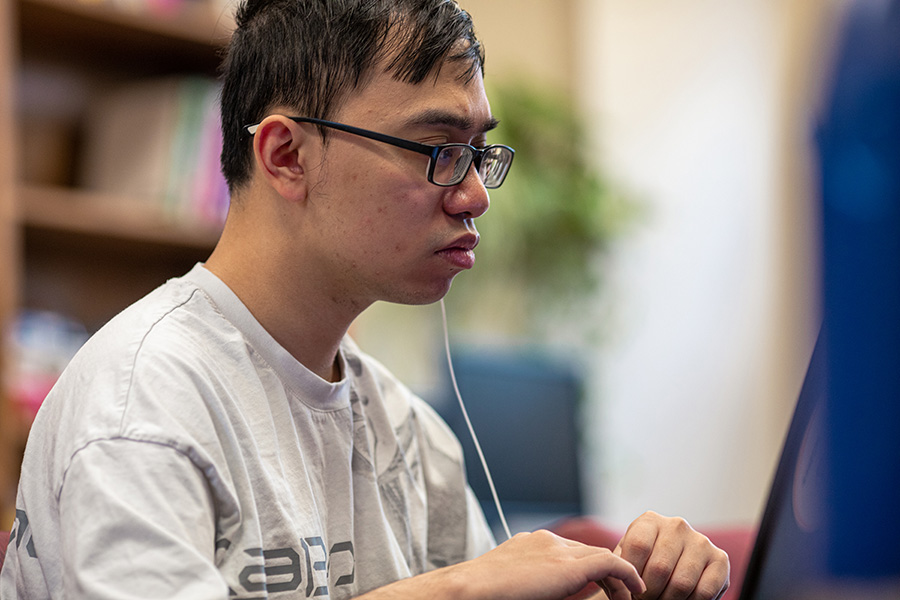
Gettysburg responds to the ‘unpredictability and inevitability of change’
In an era where artificial intelligence (AI) continues to develop and touch virtually every aspect of our lives, college graduates need enduring skills to thrive amid a rapidly changing world where tools like ChatGPT and Dall-E are ever-present. Supported by Gettysburg’s liberal arts and sciences education with the Gettysburg Approach as its foundation, our graduates are prepared to embrace continually evolving forms of technology through their ability to think critically, embrace diverse perspectives and viewpoints, and synthesize ideas.
In the Winter 2024 issue of GETTYSBURG College Magazine, we shared how Gettysburg students and alums are leaning into the challenges that confront our society with the rapid development of AI by pivoting, evolving, and keeping an open mind—supported by the knowledge and enduring skills they gained at Gettysburg.
“As we think about AI, its implications, and the skills that our students will need to have in 20 or 50 years, it really does come down to something that we’ve focused on with our liberal arts and sciences education here at Gettysburg,” said Psychology Prof. Richard Russell, “having a level of flexibility, being able to integrate different ideas, and having a holistic approach.”
By Michael Vyskocil
Posted: 04/03/24


